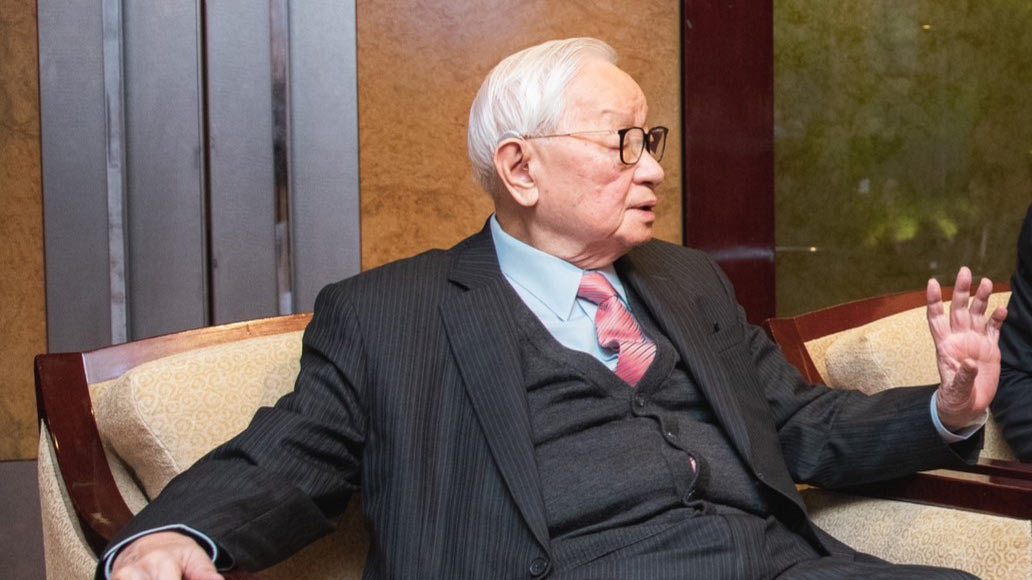
TSMC Founder Supports US Chip Sanctions on China
At the CommonWealth Semiconductor Forum at the Shangri-La hotel in Taipei today, TSMC founder Morris Chang, and author of Chip War, Chris Miller, talked about the state of the chip industry. During an hour long public discussion, Chang admitted for the first time that he supports recent US initiatives such as the Chips Act, as well as attempts to slow semiconductor development in China. Today’s event was attended by an audience of over 300, with at least a third of those being senior semiconductor figures.
The forum kicked off with Miller, an associate professor of international history at the Fletcher School of Law and Diplomacy at Tufts University, delivering an introduction which sketched out how TSMC became the world’s most important chipmaker. Then the public conversation began between Chang and Miller, moderated by CommonWealth chairperson Yinchuen Wu. Taiwanese Vice President and DPP Chairman, Lai Ching-te also spoke at the event.

Miller predicted that the chip industry is going to see significant geographic branching in the coming years – with a chasm between China and the rest of the world. However, he said the current concentration of associated technologies in a few countries meant that the shift would happen “rather slowly.”
On the same topic, Chang didn’t seem so confident that semiconductor manufacturing excellence is going to spread worldwide. Perhaps with the recent TSMC experiences in the US on his mind, Chang said that “Taiwan, Japan and South Korea have the competitive advantage in manufacturing.” More to the point he added that “It’s the work cultures in those cultures that matter.” (This is a talking point Chang has brought up before, raising questions of a potential culture class at a TSMC fab in Arizona.)
There may be another between-the-lines critique of the idea that semiconductor manufacturing can be a success anywhere. During the forum, Chang told the audience that the global spread of chipmaking would lead to higher chip costs – with production costs in the US up to double those in Taiwan – and a slowdown in the pace of development.
Moving along to US-China trade relations and Taiwan’s part in it, Chang said that China is currently five or six years behind Taiwan in chipmaking technology, and he supports US efforts to keep it that way. Obviously the TSMC icon is talking about US pressure on allied nations, and key companies like ASML to limit tech sharing with Chinese firms. Chang also expressed support for the US’s Chips Act initiative. Importantly this is the first time we have seen the iconic TSMC founder express support for these US policies.
Lastly, Chang’s statements leveled some criticism at the US. On the topic of ‘friendshoring’, where countries and companies establish supply chain networks with political and economic allies, he pointedly noted that it was something of a one way street with Taiwan and the US. In other words, Chang has noted that Washington is leaving Taiwan out of its future semiconductor vision, with no friendshoring coming towards the island.

